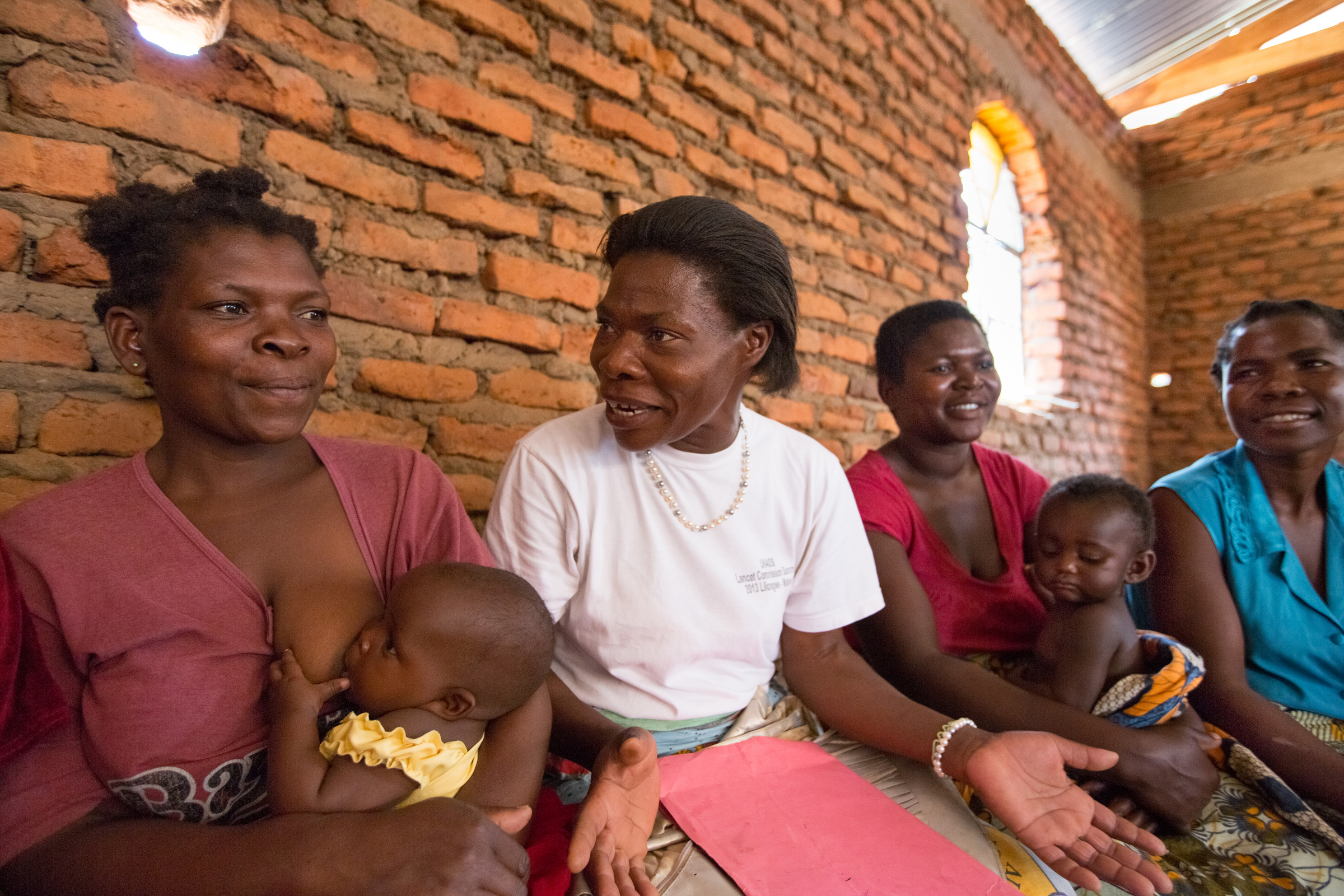“I’m Devoting Myself to This”
Emma Dzonzi Nyirenda is an HIV-positive peer educator in rural Malawi. She has been trained to counsel other women about prevention of mother-to-child HIV transmission (PMTCT) and has formed a support group for people living with HIV in her village.
She is supported by Grassroots Movement for Health and Development (GMHD), a community-based organization supported by the Elizabeth Glaser Pediatric AIDS Foundation (EGPAF), with funding through ViiV Healthcare. EGPAF’s support for such organizations helps build local capacity.

“I work on a voluntary basis as a PMTCT promoter. I was diagnosed as HIV-positive in 2008. My husband was terribly ill, and in the process of getting medical attention he found out that he was HIV-positive. Because he was told that HIV is sexually transmitted, he encouraged me to get tested as well. I was pregnant at the time, so his intervention and insistence was instrumental in my child being born HIV-negative.
“After he was found to be HIV-positive, my husband was immediately put on a course of antiretrovirals. During this period, he was also diagnosed with tuberculosis, which the weakening of his immune system had made him more susceptible to. He eventually died in 2010. I was left with a child and without a breadwinner. With time, I have learned to cope with my predicament and be strong in the face of hardship.

“As a PMTCT promoter, I mainly work on encouraging newly pregnant women to go to their nearest health center for antenatal care (ANC)—in addition to talking about the importance of family planning, use of contraceptives and the need for institutional delivery. As part of my process, I explain to husbands how valuable it is for them to escort their wives for ANC, so that they can learn what they need to do together. As HIV testing has now been incorporated into the ANC procedure, this provides a crucial opportunity for both partners to learn how they can manage the virus if the test shows they are positive.
“Coming to terms with my own HIV status has given me hope for the future. After accepting it, the next step was to take positive steps to manage the illness. The counseling and advice on nutrition that I have received has helped me to build the necessary strength and confidence to go out and sensitize the community in turn. I work hand-in-hand with community leaders in this, and it’s a sign of the progress we’ve seen that these figures are so intent in helping.

“I was one of the founders of the Chikhulupililo Support Group in 2008. When I first started going to the hospital to collect my ARVs, I would come across several people I knew from the area. We started convening locally, and would discuss how we could work to support each other and create an environment conducive to our wellbeing. I even met a lady who had lost her husband, like me, and worked up the courage to find out how she managed to cope with this tragedy in the hope that it would help me as well.
“GMHD’s assistance, which came in the form of skill enhancement sessions and training in raising awareness, converted our loose, informal group into a strong medium for community outreach. Initially, we would try to disseminate information, but didn’t know how to encourage people to come out of the woodwork and speak freely about their status. GMHD has helped us to turn this situation around, and our group has now grown to 28 people.”

Team EGPAF
Malawi
Community Mobilization



